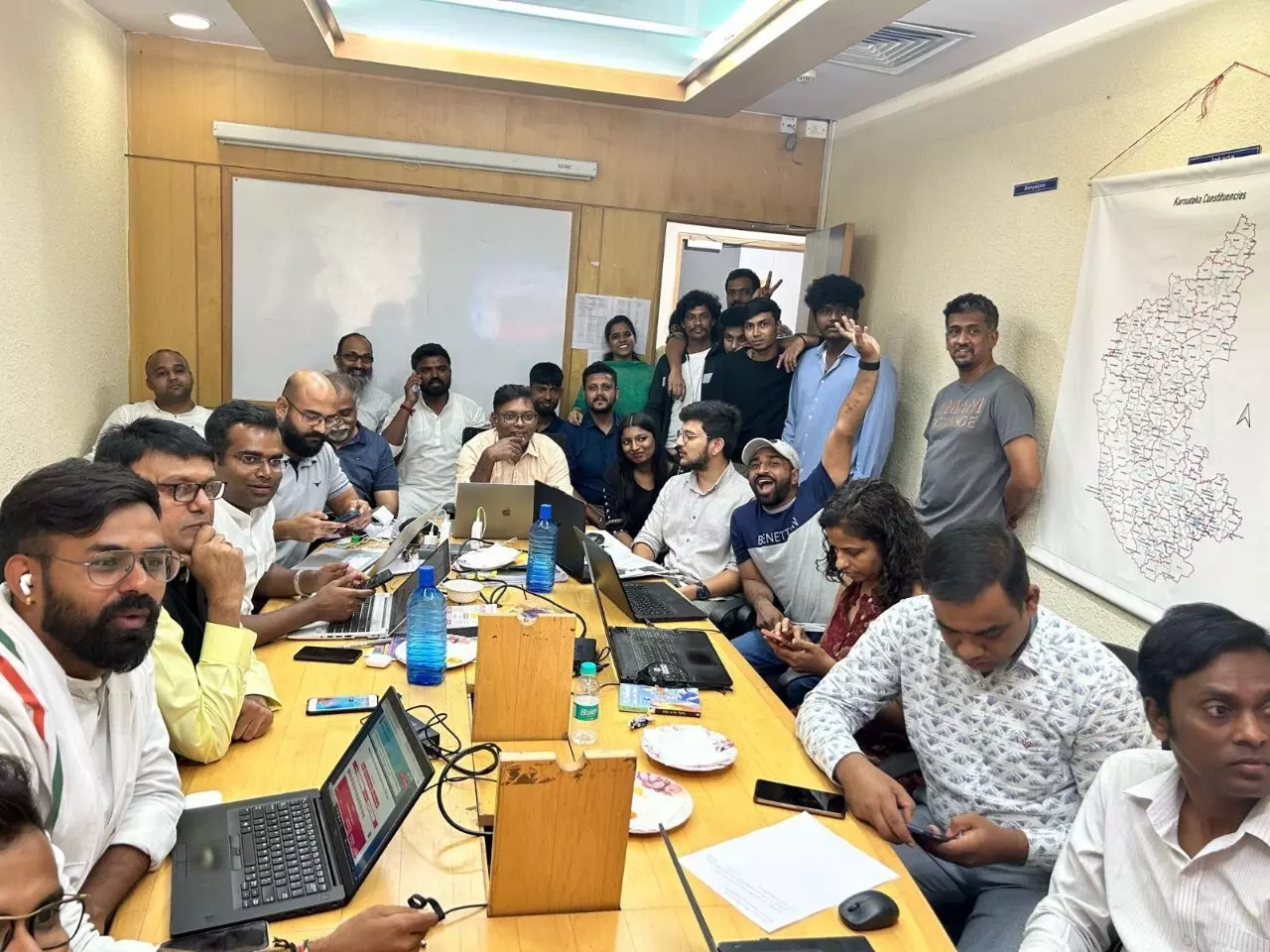How ex-IAS officer Sasikanth Senthil’s ‘War Room’ took Congress to victory in Karnataka
Mr Senthil worked as a district collector when in service in Chitradurga and Raichur in Karnataka. He was aware of the problems of the people at the ground level
By Kaniza Garari
Hyderabad: Karnataka Congress party has a master strategist in Sasikanth Senthil, a former IAS officer who joined the party in 2020. The former officer resigned on 5 September 2019 as he was disillusioned with the Central government amidst the Citizenship Amendment Act row.
The 5 poll promises
Mr Senthil worked as a district collector when in service in Chitradurga and Raichur in Karnataka. He was aware of the problems of the people at the ground level. His experience came in handy when formulating the Congress party’s five poll promises for the Karnataka elections. For this, he took feedback from the people and formulated policies that were then deliberated and finalised by the mid and senior-level leaders.
The five poll promises were:
1. Gruha Jyoti Yojane: To provide 200 units of electricity, free of cost, to every household in Karnataka.
2. Gruha Lakshmi Yojane: To give each housewife (who is the head woman of the family) Rs 2,000 per month. It would benefit 1.5 crore housewives.
3. Anna Bhagya: Those below poverty line to be provided free 10 kgs of rice every month.
4. Yuva Nidhi: To provide Rs 3,000 per month to unemployed youth with graduation degrees for two years. To provide Rs 1,500 every month as allowance to those young people who have diploma degree but are unemployed.
5. Uchita Prayana: Free bus service for women.
The poll promises were made on the feedback from the ground where price rise, depleting incomes of families, and the rising cost of education and healthcare made it difficult for lower and middle-class families to survive. Mr Senthil was also instrumental in setting up the Congress War Room that played a significant role in assuring the party’s victory in Karnataka.
Creating a ‘War Room’
The goal of this war room was to take in feedback from the people of talukas, villages, and cities and understand what schemes would help them cope with their issues. The crux was to look at the ground reality and not get carried away with narratives of emotions.
Advocate Nikhil Kamble, a Congressman from Maharashtra who was a part of the Bharat Jodo Yatra explains, “The mode of the war room was very clear. They were to concentrate only on the problems of the people and drive for solutions. It was based on this feedback that a meticulous strategy of reaching out to the people of Karnataka was developed. It was to assure them that the government would look into their problems and provide them the solution for the same.”
Ban on Bajrang Dal
The ban on Bajrang Dal was also based on the feedback that was received from the Mysuru region. This has helped them as it has taken away the seats of Janta Dal (Secular). The move was more towards hurting the local leaders and workers who were using the outfit for their benefit. Those who were at the receiving end of this wanted respite and their woes were documented.
Civil society inputs
Civil society has played a major role in the feedback that came to the War Room. The woes that people poured out to members of the civil society were duly represented. Various groups of activists from education, agriculture, industry, and other sectors were duly represented. The feedback which were taken in the Bharat Jodo Yatra was also replicated from other areas which helped them understand the essence at the ground level.
These were also compiled and deliberated upon with various leaders at mid and senior levels before drawing out a strategy to fight the elections.
Jairam Ramesh, senior Congress leader, in a tweet, says, “It was during the Bharat Jodo Yatra, from the many conversations @RahulGandhi had with the people of Karnataka, that the Guarantees and the promises in our manifesto were discussed and finalised.”